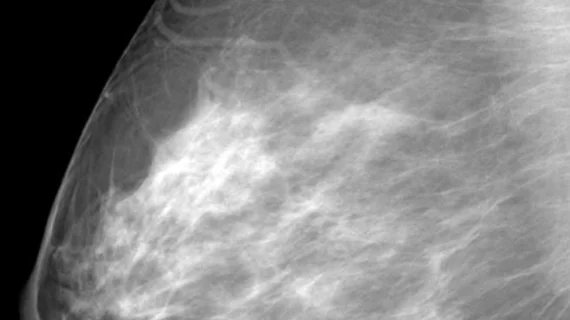New study results 'strongly' back supplemental MRI for women with dense breasts
New research suggests that supplemental MRI screening could ably spot invasive cancers missed on mammograms in women with dense breasts.
The study was published in the European Journal of Radiology on April 29—just a day prior to when the United States Preventive Services Task Force (USPSTF) issued new official recommendations for cancer screening in women. Those new guidelines, while described as a step in the right direction by many, fell short of recommending supplemental MRI for women with dense breast tissue.
For this reason, many experts publicly stated that the recommendations did not go far enough, especially given the available data on the effectiveness of breast MRI in identifying difficult to detect malignancies in dense breast tissue.
This latest research further confirms that breast MRI not only detects tumors that mammography cannot, but it also spots cancers that pose greater risks to patients.
For this study, researchers invited 200 patients with confirmed dense breast tissue (heterogeneously or extremely dense categories) and a negative mammogram screening to undergo a supplemental MRI. Experts analyzed the modality’s utility using cancer detection rates and recall rates as their primary endpoints.
Out of 200 women, 4% were recalled due to positive breast MRI findings. From those, five cancers in four patients were detected (one was bilateral), including four invasive cancers and one case of DCIS. Three out of the four patients diagnosed with cancer were classified as having category C, or heterogeneously dense, breasts.
Importantly, the authors noted, women with heterogeneously dense breasts represent around 40% of all screening eligible women.
“Our results strongly suggest the applicability of supplemental screening using MRI,” corresponding author C. Kaiser, with the Institute of Clinical Radiology and Nuclear Medicine at University Medical Center Mannheim in Germany, and colleagues wrote.
The findings from this study were in line with others analyzing the same topic, further reiterating the point the breast MRI has immense value in women’s health, the authors suggested.
One of the main arguments against utilizing MRI in the dense breast population pertains to its cost-effectiveness. However, the authors propose that foregoing mammography screening after women are confirmed to have dense tissue could help to offset some of the additional expenses related to MRI.
“In the age of value-based healthcare, a paradigm shift towards evidence-based use of imaging tests is warranted rather than discarding a diagnostic tool providing value,” the team suggested. “From high-risk screening, we know that the additional value of mammography is minimal if breast MRI is used − this could free healthcare resources and save costs when an inefficient test is discarded for an effective one.”
The study abstract is available here.

